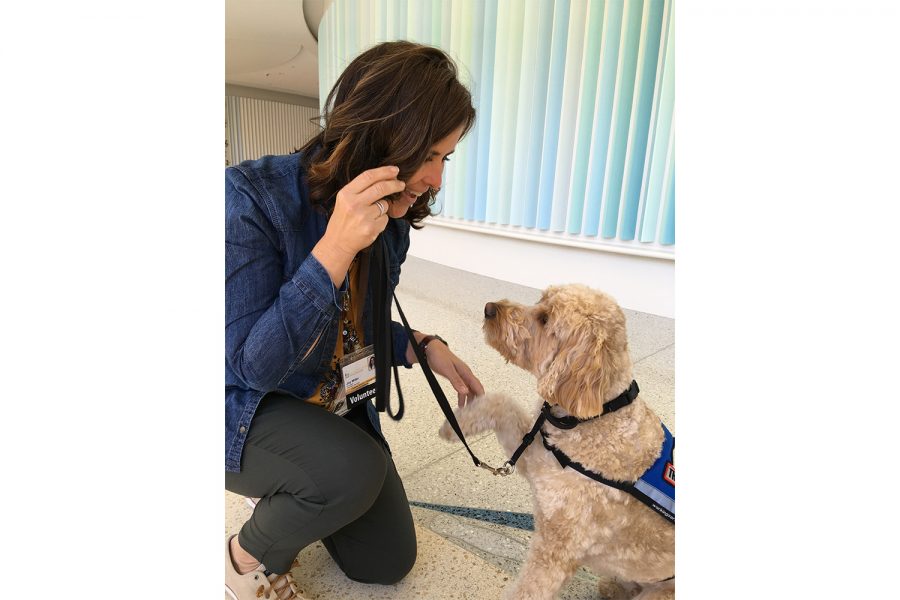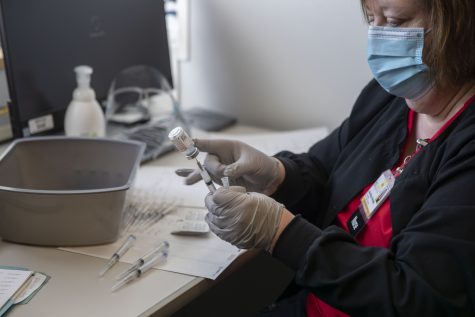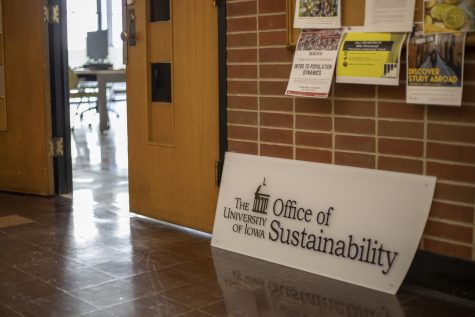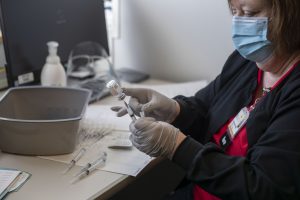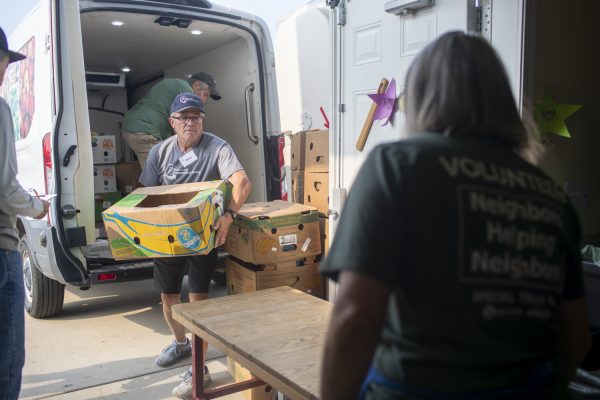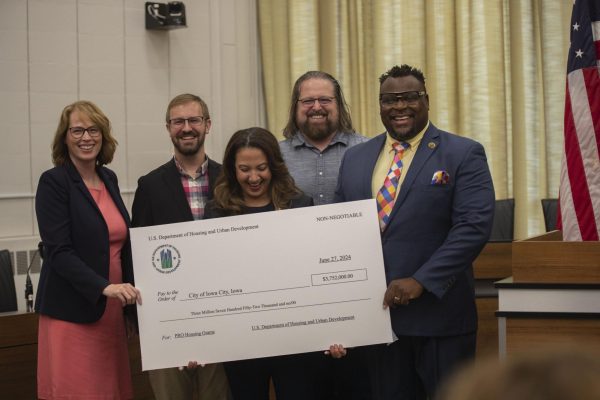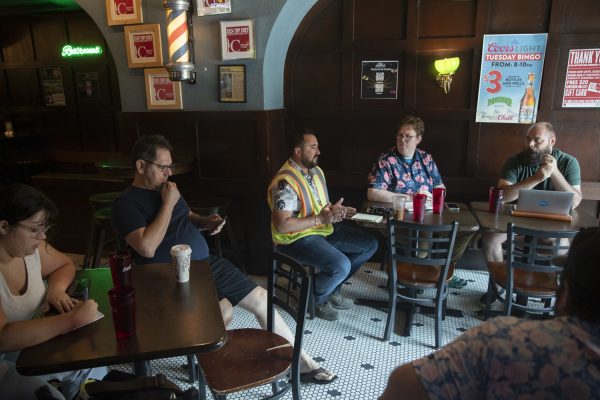Local therapy dogs serve at a distance
Therapy dogs have been forced out of their traditional service settings, but they’ve still found ways to spread joy from afar.
February 21, 2021
When Joy Miller brought her therapy dog, Milo, to Oaknoll Retirement Residence on Wednesday for the first time since last February, many residents became tearful.
“People were crying and asked, ‘Where have you and Milo been?'” Miller said. “They understand why we’ve been gone, but they consider us a part of the family.”
Milo, a mini goldendoodle, has served alongside Miller as a therapy dog for four years. Miller said she and Milo have visited students at Iowa City elementary schools and the University of Iowa, and residents at Oaknoll Retirement Residence.
COVID-19 has put therapy dogs out of work, however, because of safety restrictions in facilities they routinely visit.
Before Milo’s first in-person visit at Oaknoll on Wednesday, Miller and Milo brought joy to Oaknoll residents while maintaining social distance.
Oaknoll Administratrator Kim Bergen-Jackson said the facility used a chatterbox contraption that allowed residents to greet Milo safely.
“The chatterbox is a three-sided wood structure with plexiglas for walls,” Bergen-Jackson said. “The resident is in the chatterbox and their visitors on the other side of the plexiglas. It was something I saw on Facebook, and our maintenance department built us two of them.”
Miller said Milo had the opportunity to greet residents using the chatterbox and other socially distanced approaches.
“Earlier in the winter, I would go to a window, and they would bring wheelchairs and line them up next to a picture window,” Miller said. “We smeared peanut butter on the glass. Milo would be licking the glass, and the residents thought that was hilarious.”
Bergen-Jackson said Milo spent a lot of time greeting residents from outside windows.
“Dogs just love everybody, and Milo is good in a crowd or one-on-one,” she said. “The residents are socially isolated during this pandemic, so it’s nice to see them interact with Milo and have personal contact.”
Similar to Oaknoll, UI Hospitals and Clinics have found ways to offer therapy-dog services safely.
Director of Volunteer Services at UIHC Jean Reed said the pandemic has sidelined therapy dogs’ on-site service at the hospital. Patients and health care workers cannot come in contact with therapy dogs, Reed said, so they are recorded instead.
Reed said UIHC broadcasts therapy dog visits from the patients’ library. Patients can tune into the hospital channel to request tricks and ask questions about the therapy dog.
Reed said she owns a therapy dog named Skeeter that frequently visited the hospital before COVID-19 started spreading.
“It was really sad at first because every week she would go to the hospital, and she knew her people,” she said. “She even knew when we were driving to the hospital because she could tell by the curves in the road.”
Reed said Skeeter particularly misses the health care workers at the hospital.
“I always joke that Skeeter is an equal opportunity therapist. We’ve gotten calls when it’s a hard day on the unit, and the staff needs the therapy,” Reed said. “The health care workers are the folks that know Skeeter by name. When they see my face here without the dog there, they don’t remember my name, but they remember to ask about the dog.”
Reed said she is uncertain when UIHC will allow for the return of therapy-dog visits.
Miller said Oaknoll residents are awaiting Milo’s on-site return.
“Milo and I will be at Oaknoll weekly at least,” Miller said. “[On Wednesday], he jumped in residents’ beds from the doorway. He knew they were his people, and that’s his job.”
Bergen-Jackson said Oaknoll has had no resident COVID-19 cases, adding that 100 percent of residents and 89 percent of staff have been vaccinated against the virus.
Because of the facility’s success in protecting residents from COVID-19, she said therapy-dog visits would remain an important priority.
“Some people get along much better with dogs than they do people. If all of your contacts all day long have to provide a service to you, it doesn’t feel very intimate, but the dog is just there for love,” Bergen-Jackson said. “People are just so lonely, and Milo is filling a huge gap.”



